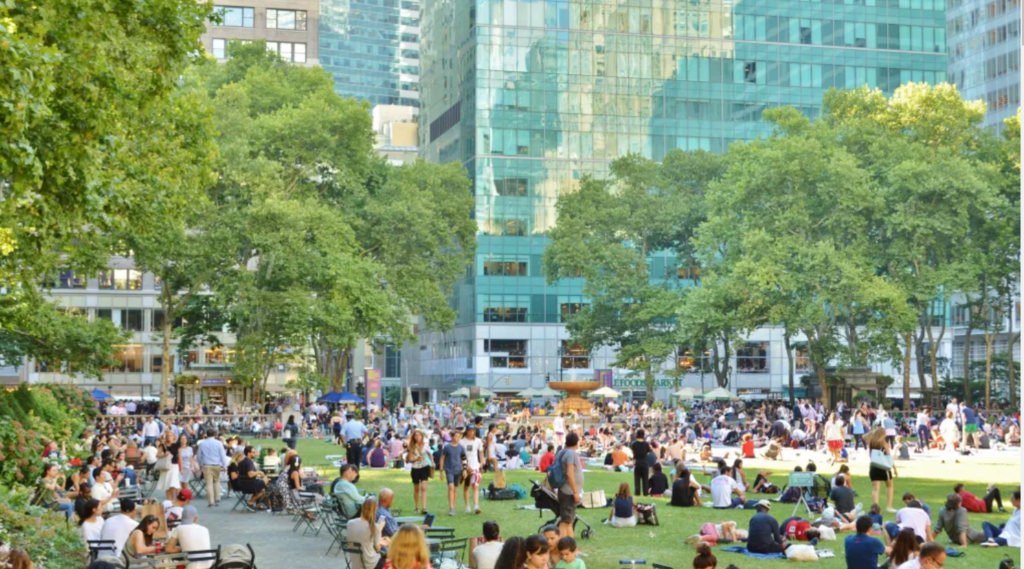Editor’s Note: This analysis is part of the USC-Brookings Schaeffer Initiative for Health Policy, which is a partnership between Economic Studies at Brookings and the University of Southern California Schaeffer Center for Health Policy & Economics. The Initiative aims to inform the national healthcare debate with rigorous, evidence-based analysis leading to practical recommendations using the collaborative strengths of USC and Brookings.
Should the National Football League give Super Bowl seating preference to ticket-holders who have been vaccinated for COVID-19? Should government ease quarantine requirements for travelers who can show that, following recovery from COVID-19, they have protective antibodies? Should employers allow workers to return to high-risk jobs while the pandemic rages if they can demonstrate either acquired or conferred immunity?
Each of these questions captures an actual or realistic scenario. And each serves as a Rorschach test of sorts for how to think about social fairness in a public health crisis. When the idea of immunity “passports” or certificates was first introduced early in the pandemic, proponents were taken by the seeming logic of speeding return to normal activities more safely through selective risk stratification. Vocal opponents, however, were greatly disturbed by, among other concerns, the potential to undermine social solidarity by conferring advantages selectively (see e.g. here, here, here, and here). A rich ethical debate ensued, which, not surprisingly, remains unresolved.
Intrigued by the strength of views on both sides of this divide, we surveyed views in the general public, to see whether they aligned with one side or the other, and to learn what factors might shape those views. As reported here (with full data below), we discovered that the public is as divided as are the ethicists. Almost half favor conferring some form of immunity privileges and a small majority are opposed.
Considering how divided the public has been on other aspects of COVID-19 public health policy, a nearly 50-50 split in views is perhaps not terribly surprising. What is surprising, though, is that this division does not align with the ideological or socioeconomic factors that have strongly shaped other COVID-related attitudes. Views on immunity privileges are as divided among Republicans as among Democrats. And so too among Whites and Blacks, and across people of lower and higher socioeconomic status, different age groups, and different levels of health risk. Also surprising is that support does not vary much according to whether government versus private actors confer immunity privileges, with only slightly more support for the latter.
Significant differences emerged mainly based on gender (with males more strongly in favor), and ethnicity (with Hispanics/Latinx more opposed). Rather than standard demographics or political affiliation, the factors we found most strongly associated with support or opposition to immunity privileges were respondents’ attitudes to or experiences with COVID-19. Respondents who knew someone well who had tested positive for COVID-19 were especially likely to favor immunity privileges, as were respondents when told it was virtually certain that antibodies confer strong protection from infection. On the other hand, those who thought that immunity privileges could harm the community’s “social fabric” or that (at the time of the survey) that it would take several years before a safe and effective vaccine became widespread tended to oppose. (Full data available below.)
Our results differ somewhat from those reported elsewhere by Brookings earlier this week. Zhang and colleagues found that only 25-31 percent of US adults oppose using either electronic or paper certification of vaccination to access public transport. However, 16-20 percent were undecided, and so only about half of respondents (52-54 percent) supported the concept. Our differing results may be due to asking about immunity privileges in somewhat different ways, and administering our surveys at different points in the pandemic. Nevertheless, both surveys confirm that public views are deeply divided and are influenced a good deal by the contexts in which the “passport” concept is implemented.
Based on these patterns of division, it is unlikely that government will embrace immunity privileges as proactive public health policy on a widespread basis. At most, we see this is likely only in select areas, such as international travel or interaction with high-ranking officials. However, the public’s felt desire to resume economic and social activities, coupled with the undeniable biological realities of the virus, will make at least some degree of private or voluntary immunity certification inevitable. Then, the question becomes whether government should step in to regulate the fairness or accuracy of how people and businesses use plausible risk factors to sort themselves.
A serious threat of various social harms — excessive risk taking, sharp socioeconomic disadvantage, widespread fraudulent certification — could justify setting some limits. However, government overreaction might itself be socially divisive by restraining rational responses to long-awaited protection. The potentially profound stakes, and the deeply felt division of views, call for prompt and thoughtful public deliberation as we enter the next phase of pandemic control.
Click here to download the study results and the full data from the original and the follow-up surveys.
The authors did not receive financial support from any firm or person for this article or from any firm or person with a financial or political interest in this article. They are currently not an officer, director, or board member of any organization with an interest in this article.
